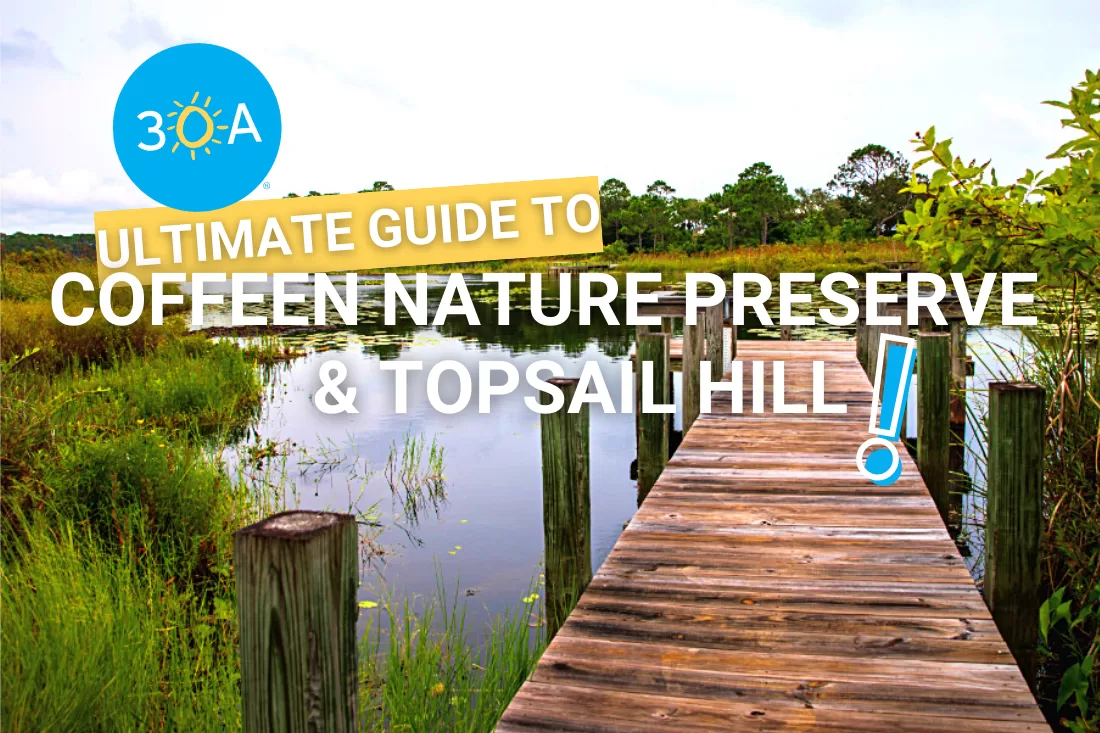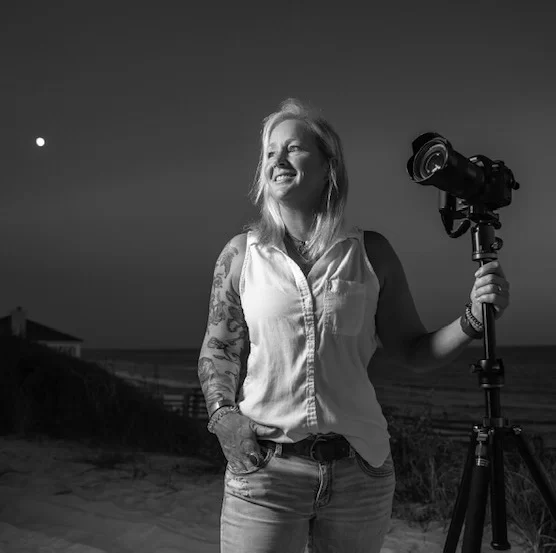The Surprising History of Coffeen Nature Preserve and Topsail Hill
Special is an understatement when it comes to describing two natural preserves in Walton County.
Special is an understatement when it comes to describing two natural preserves in Walton County.

It’s no secret that Walton County, specifically coastal County Highway 30A, boasts some of the world’s most beautiful beaches. The stunning white sand is among some of the whitest in the world. It might be a secret though that the same sparkly white sand stretches farther inland than most people realize and is part of the “forest floor” that is home to at least two stunning nature preserves in Walton County. One lies on the west end of 30A. You might recognize the name of Topsail Hill Preserve State Park. The other, adjacent to Topsail, and a little west off the beaten path of Highway 98 is the private Coffeen Nature Preserve.
While Topsail Hill Preserve has made its way as a State Park, Coffeen Nature Preserve has remained less traveled partly due to the environmental treasures it holds and protects, but also because of the land’s lesser-known storied military history.

Take an almost hidden turn off of Highway 98 and enter a coded gate that will not only take you to a natural wonderland, but also back in time.
Today, the fiercely protected Coffeen is both stunningly beautiful, and also quiet. This wasn’t always the case. Just before World War II Robert Bushnell, the one time State Attorney General of Massachusetts purchased roughly 2000 acres of undeveloped landmass stretching from the Gulf of Mexico up to the Choctawhatchee Bay. Soon after the war began, the U.S. Army Air Corps took over the coastal acreage for a secret military operation. In an attempt to create an American version of the German V-1 bomb, the Army Air Corps sought the land for its elevated topography to build a missile test site, and the JB-2 missile was born.

During its years in the hands of the military, the land was leased from the Bushnell family for one dollar a year. Missile launch ramps were constructed and 600 unarmed missiles were fired from their more than 100 yard-long tracks as far out as 150 miles into the Gulf. The military installed these missile launch tracks, four of which remain in Coffeen and Topsail to this day, along with four concrete protective bunkers from which the missiles were launched. The bunkers still retain their original heavy metal doors and ground-level windows. Some of the original housing built for the officers who ran this operation still stands on the coastal property.
The site was known as C64, the “proving ground,” and was the start of the United States strategic missile program.
When the war was over and the land returned to the Bushnells, Robert, his mother Mary, sister Dorothy and husband John Coffeen partnered to create Four Mile Village, Inc. Determined to preserve the pristine ecology of the land, they plotted it out and sold off parcels to wealthy private landowners whom they entrusted to respect and conserve the land’s natural wonder. Dorothy eventually became the last officer and left the unsold land in the care of the Sierra Foundation, which managed it from 1976 to 2003. The land was transferred in 2004 to the Coffeen Land Trust, a local non-profit environmental organization.


Between the two Preserves, there are three of the rare and endangered coastal dune lakes. Coffeen holds Fuller Lake, connected through marshland to Morris Lake. Fuller Lake is affected by the outflow exchange with the Gulf. It is considered a freshwater lake, but because of its minute brackish threshold, it is considered a coastal dune lake. It was recently classified as the third most pristine coastal dune Lake in Walton County. The Preserve’s flora and fauna stem from micro mosses and lichens to the canopied trees found along the many sand pine trails throughout Coffeen.
Great Live Oaks, Myrtle Oaks, Wild Magnolia, and Crooked Wood trees will shade you as you walk beside the rare Gulf Lupine and pitcher plants.
Though the land was previously timbered when Bushnell purchased it, there are still a very few hearty Longleaf Pines remaining in the forests here. The Preserves are home to black bears, foxes, bobcats, rabbits, wild turkeys, Southern opossums, raccoons, white-tailed deer, and American alligators. On a rare day, especially in the less traversed Coffeen Preserve, you might even see a gopher tortoise or an endangered Choctawhatchee beach mouse. One day while bird watching you could be lucky enough to spot one of several nesting American Bald Eagles thriving peacefully and successfully reproducing in the Preserves.


In 1968 Dorothy Coffeen appreciated her beloved rare coastal land saying, “A rare place of peace and quiet and a haven for all God’s creatures. It is a place where Nature can take precedence over the superficial, and where those who can appreciate Nature in her various moods and forms can find haven; where all God’s creatures can live their lives without molestation, suffering neither man’s indifference nor pursuit.”
Topsail Hill Preserve State Park and Coffeen Nature Preserve are protected State of Florida. Coffeen’s pristine 210 acres are managed by Administrators Susan and Bruce Paladini.


